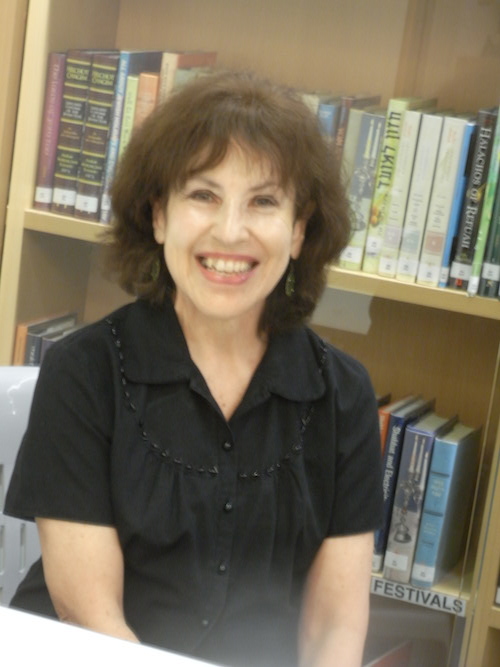"Ma Tovu Ohalecha Yaakov" - "How Goodly are Your Tents, O Jacob" - is a verse that is familiar to many of us. Appearing in the parasha of Balak, it is one of Bilaam's blessings to the Jewish People. But what does it mean?
Many would be aware that it is recited upon entering the Synagogue. And as the Midrash and commentaries explain, the "Tents of Jacob" can be interpreted to mean the Tents of Worship and The Tents of Study.
However, in his first commentary on the verse, Rashi takes a different position. He explains "Tents of Jacob" to mean the ordinary tents of the Jewish people.
What was so "goodly" about a regular Jewish tent? Surely there were no grand vistas overlooking the ocean, no imported furnishings, no exquisite artwork? It was, after all, a wilderness!
Rashi explains that Bilaam, upon seeing that their doors and windows did not face each other, was overwhelmed by the modesty of the Jews and cried out, "How Goodly are Your Tents, O Jacob!"
Privacy, you see, is not merely a Council regulation. It is an essential part of being Jewish. What a person does is no one's business but his own. It is forbidden to stand on the fence and look into your neighbour's back yard. And it is certainly forbidden to build doors and windows overlooking your neighbour's property so you can observe his business or his possessions. It is called "Hezek Rei'ah" - Damage by Sight. (The exact details of these laws can be found in the Talmud and Shulchan Aruch - we are dealing here with the principle.)
Jealousy - which simply means the inability to abide another's success - is in Hebrew called "Sinat Chinam" - "Baseless Hatred". It is not a hatred born of a person harming you in any any way. It is rather a feeling that grows in you because someone has something that you don't: fame, possessions, or any form of material or spiritual success. It is based on the unfounded belief that somehow or the other, the other person, through his success, is depriving you of yours.
Jealousy - and baseless hatred - arise because instead of focusing on yourself, your mission, your possibilities - you compare yourself to others. And worse, you consider the success of others to be the major reference point and benchmark of your own success. According to this logic, someone who is higher up on the "ladder of success" than you automatically pushes you down a rung.
A person with this attitude can never really be happy. There is always going to be someone who is better, or better off, than him.
The evil of jealousy and baseless hatred is repeated three times in Pirkei Avot - and on two of those occasions it is said that it "forces a person out of the world". It is a soul-destroying malady that does far more damage to the person who is jealous than to the object of his jealousy.
A cow when it comes to drink at a spring, we are told, does not immediately drink of the clear fresh water. Rather, it first kicks the water, thereby muddying it, and only then drinks. Why? Our rabbis explain that when he looks into the water, he sees another cow...
When a person truly believes in G-d, his reference point is not others but himself. He believes that G-d has created each of us with unique characters and possibilities. Each of us has individual strengths and weaknesses, each of us have our own personal contribution to make. He believes that G-d expects him to be his PB, his Personal Best. G-d, and G-d alone, is his judge.
One of Maimonides' students wrote to him that someone was denigrating Maimonides in order to build himself up. Maimonides asked his student to leave the matter alone. If putting Maimonides down made the person feel better - then let him do so. He explained that concern for what others were saying about you was "nothing but foolishness". "It is not worthy to spend one's life involved in anything but the perfection of one's own character or the pursuit of knowledge," he concluded.
Most of us don't feel as secure as Maimonides, and may not act as generously as he did. But the lesson is still clear. It is not the other that gives purpose or success to your life. You do.
Bilaam, the arch-enemy of the Jewish People, could not help but be overwhelmed when he saw that the Jews did not look into their neighbours' tents. We read this portion of the Torah just before the Three Weeks when we mourn the destruction of the Temple which was caused by baseless hatred and jealousy. At this time of year, let us commit our lives to achieving our personal best, without reference to our neighbours.
Let me conclude with the famous quote of Rabbi Zusia of Annipoly. "When I go up to heaven I will not be concerned if they ask me why I wasn't Moses. I will say that I am not Moses. I will not be worried should they ask me why I wasn't like the Baal Shem Tov - I am, after all, not the Baal Shem Tov. I have only one concern - what will I say when they ask me, "Zusia, why weren't you like Zusia!",
Rabbi Benzion Milecki OAM

 Welcome to the Sandra Bransky Library & Youth Synagogue, located on the first floor and including the Beit Midrash. Drop in any Sunday morning between 9 - 11am.
Welcome to the Sandra Bransky Library & Youth Synagogue, located on the first floor and including the Beit Midrash. Drop in any Sunday morning between 9 - 11am. 


